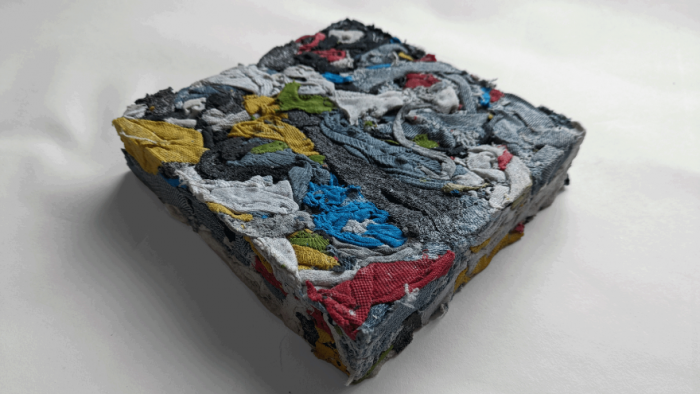A top 20 nominee of the James Dyson Awards 2024, Sorbet Acoustic panels are made from upcycled hometextile waste to combat noise pollution in both residential and commercial spaces. The acoustic panels, designed by Sze Yek (RMIT University), are constructed from shredded textile waste bonded with a starch-based adhesive. They tackle the challenge of household textile waste (which has one of the lowest recovery rates in Australia, second only to plastics) and is becoming a growing problem globally due to the rise of fast fashion ecommerce. Due to the short lived nature of fast-fashion, clothing items are quickly contributing to environmental damage. Sorbet acoustic panels aims to support the sustainable decommissioning of these materials by giving them a second life whilst improving the noise pollution.
Designed by Sze Yek, Acoustic panels are essential in both residential and commercial spaces to reduce noise pollution, in support of mental and physical health. Yek’s Sorbet acoustic panels use a textile-based material with a density comparable to PVA when dried. Humidity testing revealed the panels soften when wet but regain strength as they dry, thanks to the salt-rich, starch-based adhesive. The production process results in the panels having improved sustainability when compared to common acoustic panels which are manufactured from open cell polyurethane foam and which is difficult to recycle. Without compromising on aesthetics, Sorbet acoustic panels are designed to make use of the colour and textural variability of household textiles and are available in three aesthetic options Blueberry Lemonade, Red Velvet, and Hundreds and Thousands.








